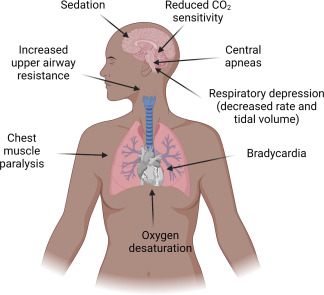What is the main reason why a woman who is older than 35 years may have difficulty achieving pregnancy?
She has used contraceptives for an extended time.
Her ovaries may be affected by the aging process.
Prepregnancy medical attention is lacking.
Personal risk behaviors influence fertility.
The Correct Answer is B
Choice A reason: This is not the main reason, as the use of contraceptives for an extended time does not necessarily affect the fertility of a woman. Most contraceptives are reversible and do not cause permanent damage to the reproductive system. However, some contraceptives may take longer to wear off than others, and some may have side effects that can interfere with ovulation or implantation.
Choice B reason: This is the main reason, as the aging process can affect the ovaries and the quality and quantity of the eggs. As a woman ages, her ovarian reserve (the number of eggs in the ovaries) declines, and the eggs become more prone to chromosomal abnormalities. This can reduce the chances of conception and increase the risk of miscarriage or birth defects.
Choice C reason: This is not the main reason, as prepregnancy medical attention is not a prerequisite for achieving pregnancy. However, prepregnancy medical attention can be beneficial for a woman who is older than 35 years, as it can help identify and manage any existing or potential health problems that may affect the pregnancy, such as diabetes, hypertension, or thyroid disorders.
Choice D reason: This is not the main reason, as personal risk behaviors are not specific to a woman who is older than 35 years. Personal risk behaviors are factors that can negatively affect the fertility of any woman, regardless of age. Some examples of personal risk behaviors are smoking, drinking, using drugs, having multiple sexual partners, or having sexually transmitted infections.
Nursing Test Bank
Naxlex Comprehensive Predictor Exams
Related Questions
Correct Answer is ["A","B","E","F"]
Explanation
Choice A reason: Limiting time spent wearing a wet bathing suit is a good preventive measure, as it can reduce the moisture and warmth that can promote the growth of bacteria and fungi in the genital area. The nurse should advise the 15-year old to change into dry clothes as soon as possible after swimming or bathing.
Choice B reason: Not douching is a good preventive measure, as it can preserve the natural balance of the vaginal flora and pH. The nurse should explain to the 15-year old that douching can wash away the protective mucus and lactobacilli that prevent infections, and it can also introduce harmful substances or microorganisms into the vagina.
Choice C reason: Wearing nylon undergarments is not a good preventive measure, as it can trap heat and moisture in the genital area and create a favorable environment for infections. The nurse should recommend the 15-year old to wear cotton or breathable fabrics that can absorb sweat and allow air circulation.
Choice D reason: Using floral scented bath salts is not a good preventive measure, as it can irritate the genital mucosa and alter the vaginal pH. The nurse should caution the 15-year old to avoid using any products that contain perfumes, dyes, or chemicals in the genital area, as they can cause allergic reactions or infections.
Choice E reason: Decreasing sugar intake is a good preventive measure, as it can lower the risk of yeast infections. The nurse should educate the 15-year old that sugar can feed the growth of Candida albicans, which is a common cause of vaginal candidiasis. The nurse should also encourage the 15-year old to eat a balanced diet that includes probiotics, such as yogurt, to maintain a healthy vaginal flora.
Choice F reason: Avoiding tight-fitting jeans is a good preventive measure, as it can prevent friction and pressure on the genital area. The nurse should suggest the 15-year old to wear loose or comfortable clothing that can reduce the risk of skin irritation or injury, which can lead to infections.
Correct Answer is C
Explanation
Choice A reason: A sleepy, sedated affect is not a concerning sign, as it is a common side effect of magnesium sulfate. Magnesium sulfate is a central nervous system depressant that can cause drowsiness, lethargy, and reduced alertness.
Choice B reason: Absent ankle clonus is not a concerning sign, as it indicates a normal neuromuscular response. Ankle clonus is a rhythmic jerking of the foot when the ankle is dorsiflexed. It is a sign of hyperreflexia, which can occur in severe preeclampsia due to increased blood pressure and cerebral edema.
Choice C reason: A respiratory rate of 10 breaths/min is a concerning sign, as it indicates respiratory depression. This is a serious complication of magnesium sulfate toxicity, which can lead to respiratory arrest and death. The nurse should monitor the woman's respiratory rate closely and report any signs of respiratory distress.
Choice D reason: Deep tendon reflexes of 2+ are not a concerning sign, as they indicate a normal neuromuscular response. Deep tendon reflexes are graded from 0 to 4, with 2 being the average. Magnesium sulfate can cause hyporeflexia or areflexia, which are signs of magnesium sulfate toxicity.

Whether you are a student looking to ace your exams or a practicing nurse seeking to enhance your expertise , our nursing education contents will empower you with the confidence and competence to make a difference in the lives of patients and become a respected leader in the healthcare field.
Visit Naxlex, invest in your future and unlock endless possibilities with our unparalleled nursing education contents today
Report Wrong Answer on the Current Question
Do you disagree with the answer? If yes, what is your expected answer? Explain.
Kindly be descriptive with the issue you are facing.
